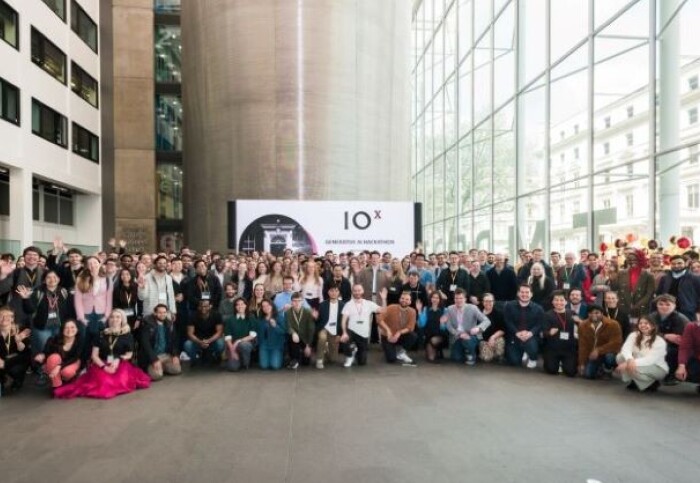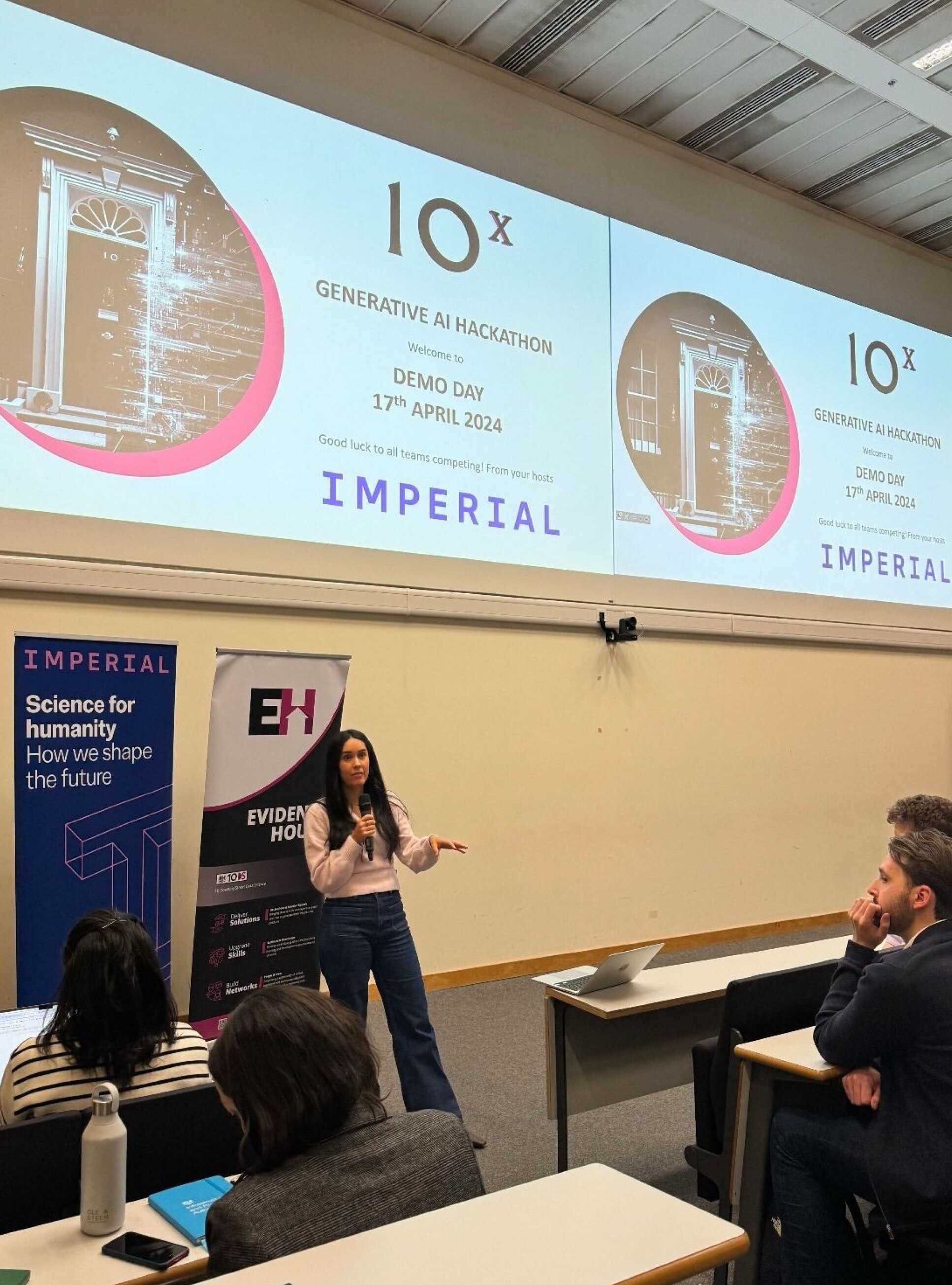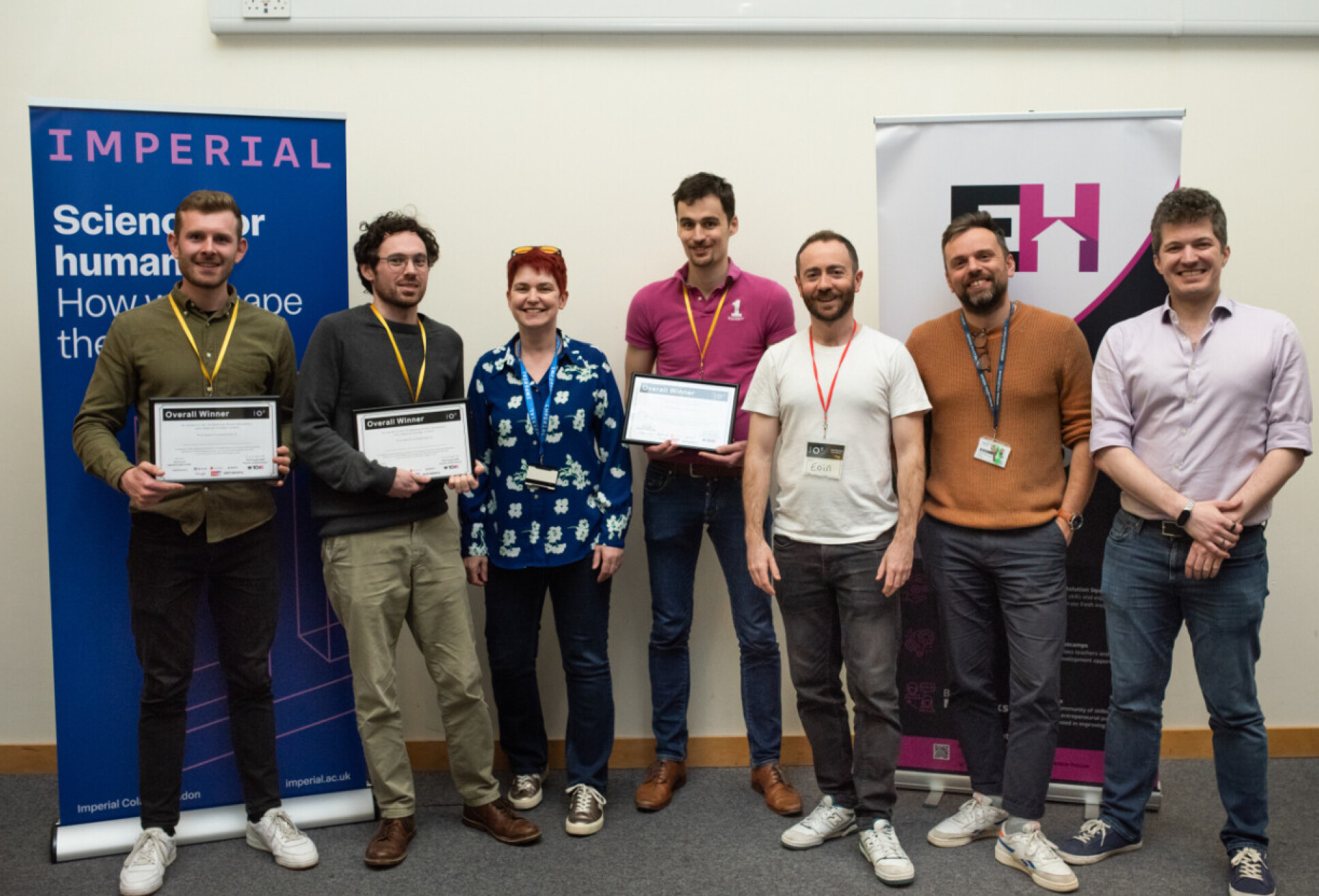Imperial and civil servants join forces on AI for government challenges

Imperial students, civil servants & representatives from global tech companies hack solutions for challenges faced by government departments using AI
This week, a group of over 200 civil servants, Imperial students and representatives from global tech companies including Open AI, Google, AWS and Microsoft came together at Imperial College Business School for a three-day hackathon focused on the development of solutions for challenges faced by government departments using generative AI.
This hack was run in partnership between the Imperial Policy Forum and Evidence House, a No10 initiative focused on upskilling civil servants in data science, development and AI whilst delivering insights and innovative solutions to government problems.
Combined teams of civil servants and students focused one on of eight ‘problem’ areas that government departments face, and were tasked with building potential solutions using generative AI. The areas were Handwritten Correspondence; Legislation; Meetings; Skills; National Situation Centre; Grants & Awards; Major Projects and Communications
During the launch ceremony, Dr Laura Gilbert, Chief Analyst and Director of Data Science at 10 Downing St, highlighted that ‘Imperial is a key partner for government to think about better and less expensive AI solutions into government’.
Professor Mary Ryan, Vice Provost for Research and Enterprise, added: ‘none of us have been ready for the disruption of AI. Thinking of application is really important, one of the new ways to accelerate translation is to think about how we can drive better changes using new technologies, and that is at the heart of Imperial’s new strategy’.
Shortlisted teams pitched their potential solutions to a panel comprising of Professor Mary Ryan and a group of leaders in the tech sector: Paul Willmott, Chair of the UK Government Central Digital & Data Office; Lord Walney, HMG’s Adviser on Political Violence & Disruption and Ben Henshall, Deputy Director, Data Science and AI, Number 10. Among many inspiring and promising solutions, three projects were selected.

The winning team was Career Advice Resources and Learning (Carl), a chatbot that offers personalised job guidance with a human-centred approachidentifying skills gaps and supporting a transition to future jobs. Carl can optimise job searches and application processes through the automation of often laborious tasks using a job-seeker-centred approach, and even advise on tailored skills and career development paths to support job transitions in fields transformed by emerging technologies.
In second place, Ministerial Dispatch Automation Service (MidAs), showcased a new ‘gold standard for ministerial correspondence’, proposing solutions to steamline the enormous volume of written correspondence between MPs and government Ministers. The tool allows quick digitalisation of written correspondence and can automate critical aspects of the reply process. Besides saving time and labour, it helps maintain the consistency of responses to similar queries, while also allowing the collection of big data that supports the government in identifying priority topics for constituents and MPs.
The third place was given to ‘Legis-maker’, a tool offering to significantly reduce the time needed todraft legislation. Using machine learning and pulling from both existing legislation and Office of the Parliament Counsel guidelines, Legis-maker is able to quickly suggest new legislative text, or the production of new explanatory notes for existing legislation. Through a human in the loop process, it also offers embedded ethical checks. This team includedTom Savage, a PhD Student in Process Systems Engineering and Enrichment Student at The Alan Turing Institute
The winning teams will be invited to present their potential solutions to senior officials in Downing Street, with the possibility of being developed into full pilot projects within government. This hackathon follows from a previous hack last year hosted by City University, from which the winning project 'Redbox Copilot' was spun up into a prototyping team in No10 and which is now being trialled with Ministerial Private Offices.

Article text (excluding photos or graphics) © Imperial College London.
Photos and graphics subject to third party copyright used with permission or © Imperial College London.
Reporter
Mari da Veiga
Communications Division